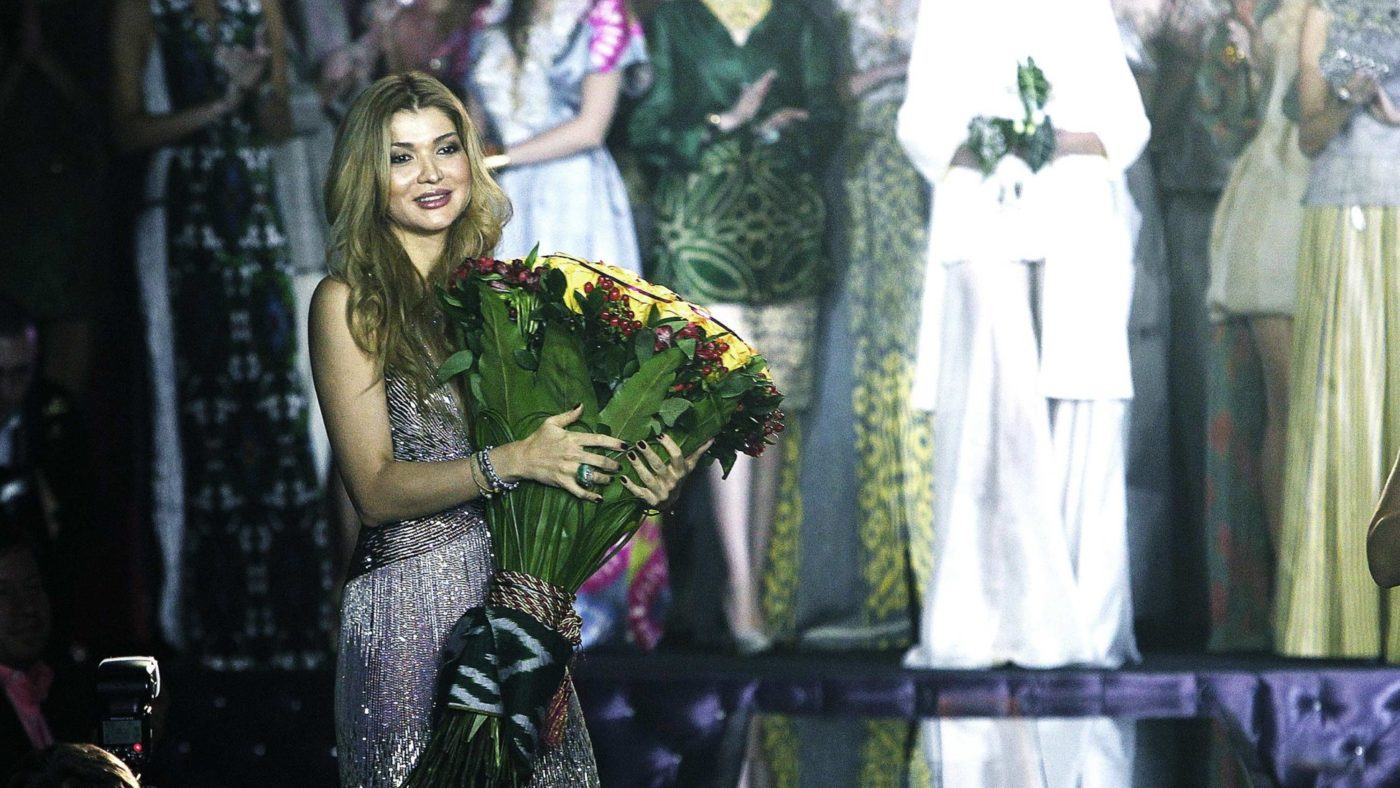On Friday a new chapter was added to one of the enduring mysteries of Central Asia – what has happened to Gulnara Karimova? Uzbekistan’s prosecutor had finally brought charges against the glamorous daughter of the late president. As well as apparently terrifying the people of Uzbekistan, she provided journalists with reams of copy, mainly thanks to her unique mixture of an attempt at a pop career and business practices which the US State Department likened to those of a “robber baron”.
Karimova suddenly disappeared in 2014 and was nowhere to be seen at Islam Karimov’s funeral when the Uzbek dictator died last year. Given that Uzbekistan is not exactly well-known for its exemplary treatment of prisoners, it was assumed by many that Karimova had been bumped off as the corruption scandals engulfing her became more embarrassing to the presidential family.
However, some clarity as to her fate began to emerge when it was announced that Swiss prosecutors investigating a telecoms corruption scandal had seen her alive and well in Tashkent in January, which was confirmed by the Uzbek general prosecutor last week.
The prosecutor has charged Karimova with siphoning off over $2 billion from Uzbekistan’s state coffers during her period in the limelight. The case is yet more evidence of the international community’s greasy palms when confronted with vast amounts of cash, no matter how questionable the source.
Rather appropriately given the number of countries which appear to have helped her to do so, the prosecutor reports the assets they believe they have discovered in order of the country where they were found. The list so far includes: In Switzerland, $777.8 million in cash and a villa in the city of Cologny worth 18.5 million francs; in Sweden, $30 million in cash; in the UK, £4.2 million in cash, houses and apartments in London worth £22.9 million; in France, apartments in Paris, the “Château de Groussy” and villas in Saint Tropez worth 52.5 million euros; in Ireland, cash and securities worth $300 million; in Malta, an aircraft costing $48.8 million; and in Germany, 2 million euros in cash.
The private banks, estate agents, and private jet companies who took on Karimova as a client should have run a few basic checks to make sure the money was clean. The most elementary of these would have been whether Karimova was a Politically Exposed Person, essentially whether she was a family member who was in a position of authority in her home country.
If this home country had a dubious international track record, perhaps because of its habit of mobilising large amounts of forced labour or the fact that it routinely imprisons political opposition figures and journalists, then that is a big red flag, particularly given the vast sums involved. Seemingly a quick google search was beyond many of these businesses when the president of Uzbekistan’s daughter turned up with $300 million to deposit.
The fact that the daughter of the president of one of the most repressive regimes on earth was given a clean bill of health by businesses in the UK, Ireland, and France illustrates the scale of the problem of dirty money finding its way into the West, and western businesses’ reluctance to look too closely at its origins.
While the Swiss have finally decided to blow the whistle on Karimova and help the new Uzbek government with their investigation, they have problems of their own: the country’s banking secrecy laws and the diplomatic immunity provided by the United Nations makes the country an attractive proposition for plenty of other shady characters.
The Criminal Finances Act, passed by the British Parliament in April, would suggest that the UK government at least is intending to grasp the nettle. But, as demonstrated by the corruption scandal surrounding the recently ousted Nawaz Sharif’s family’s UK properties and the planned £2 trillion listing of Saudi Aramco in London, there is clearly a certain unwillingness to look too closely when there are fat fees involved.
This ask-no-questions attitude can only worsen the damage done to countries from which this plunder is taken. There’s not much point stealing money unless you have nice things to spend it on, like upgrading your Antonov to a Cessna, or your damp dacha to a nice Mediterranean villa. In other words, western businesses offer an attractive reason to be corrupt. It is mainly for this reason that they need to have these checks in place.
As well as being a client for all these businesses, Karimova was also a permanent representative to the UN and a much photographed donor to Aids charities, where she was able to bask in the collective glory of her fellow philanthropists. The West gave her the legitimacy and glamour which she craved. But the Uzbek prosecutor’s list suggests there was little sense of the way in which that legitimacy hurt Uzbekistan. After all, siphoning off $2 billion is much less attractive if you can’t go and spend it in St Tropez and Mayfair.


